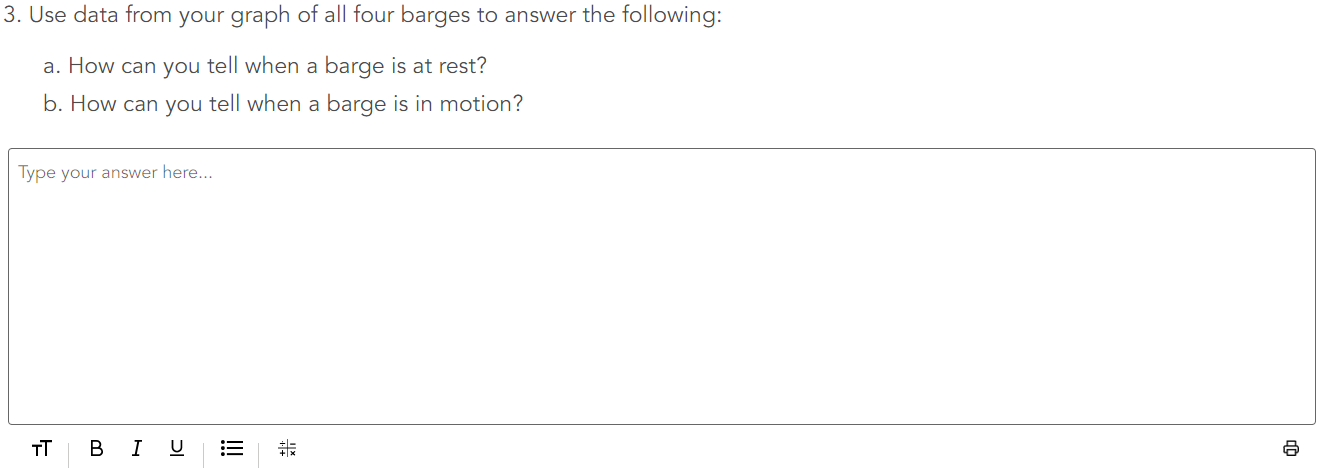How can you tell when a barge is at rest and when it is in motion using data from the graph of all four barges?

Understand the Problem
The question is asking how to interpret data from a graph of barge movements to determine when a barge is at rest and when it is in motion. This entails understanding the characteristics of the graph that indicate these states.
Answer
At rest: position graph horizontal or velocity graph at zero. In motion: position graph sloped or velocity non-zero.
The barge is at rest when the position-time graph shows a horizontal line or the velocity-time graph shows a velocity of zero. It is in motion when the position-time graph shows a sloped line or the velocity-time graph shows a non-zero velocity.
Answer for screen readers
The barge is at rest when the position-time graph shows a horizontal line or the velocity-time graph shows a velocity of zero. It is in motion when the position-time graph shows a sloped line or the velocity-time graph shows a non-zero velocity.
More Information
Position-time graphs are used to determine the motion status of an object by examining the slope and direction of the line. Velocity-time graphs provide insights based on the velocity value.
Tips
Ensure to check whether the graph is a position-time or velocity-time graph to avoid confusion in interpretation.
Sources
- Identifying a Velocity–Time Graph from a Description of Motion - nagwa.com
- [PDF] Boats in Motion - ESC Region 11 - esc11.net